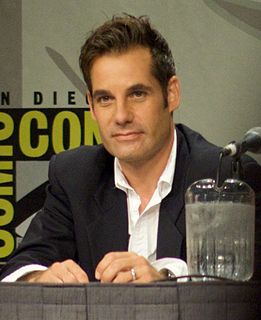A Quote by Alfred North Whitehead
Fundamental progress has to do with the reinterpretation of basic ideas.
Quote Topics
Related Quotes
A basic is an introduction. A fundamental is a foundation. A fundamental is a premise, idea, or fact that an entire system arises from and is based on. A fundamental determines the shape of what arises from it, much as a foundation of a house dictates its layout. A basic is how you introduce people you are teaching to the system. It is a beginning concept, often simplified to assist learning. If a fundamental is the foundation, a basic is the front door to enter the system.
More fundamental than religion is our basic human spirituality. We have a basic human disposition towards love, kindness and affection, irrespective of whether we have a religious framework or not. When we nurture this most basic human resource - when we set about cultivating those basic inner values which we all appreciate in others, then we start to live spiritually.
The ability of nonintelligent people to understand the most complicated mechanisms and to use them has always been to me a cause of astonishment: their inability to understand simple questions is even more astonishing. The general acceptance of simple ideas is difficult and rare, and yet it is only when simple, fundamental, ideas have been accepted that further progress becomes possible on a higher level.
Secular thinkers have no more been able to work free of the centuries-old Judeo-Christian culture than Christian theologians were able to work free of their inheritance of classical and pagan thought. The process... has not been the deletion and replacement of religious ideas but rather the assimilation and reinterpretation of religious ideas.
I have tried to read philosophers of all ages and have found many illuminating ideas but no steady progress toward deeper knowledge and understanding. Science, however, gives me the feeling of steady progress: I am convinced that theoretical physics is actual philosophy. It has revolutionized fundamental concepts, e.g., about space and time (relativity), about causality (quantum theory), and about substance and matter (atomistics), and it has taught us new methods of thinking (complementarity) which are applicable far beyond physics.
To criticize a person for their race is manifestly irrational and ridiculous, but to criticize their religion, that is a right. That is a freedom. The freedom to criticize ideas, any ideas - even if they are sincerely held beliefs - is one of the fundamental freedoms of society. A law which attempts to say you can criticize? and ridicule ideas as long as they are not religious ideas is a very peculiar law indeed.
...regrettable as it may seem to the idealist, the experience of history provides little warrant for the belief that real progress, and the freedom that makes progress possible, lies in unification. For where unification has been able to establish unity of ideas it has usually ended in uniformity, paralysing the growth of new ideas. And where the unification has merely brought about an artificial or imposed unity, its irksomeness has led through discord to disruption.
The suppression of uncomfortable ideas may be common in religion or in politics, but it is not the path to knowledge, and there's no place for it in the endeavor of science. We do not know beforehand where fundamental insights will arise from about our mysterious and lovely solar system. The history of our study of our solar system shows us clearly that accepted and conventional ideas are often wrong, and that fundamental insights can arise from the most unexpected sources.
Ideas are the engines of progress. They improve people's lives by creating better ways to do things. They build and grow successful organizations and keep them healthy and prosperous. Without the ability to get new ideas, an organization stagnates and declines and will eventually be eliminated by competitors who do have fresh ideas.








































